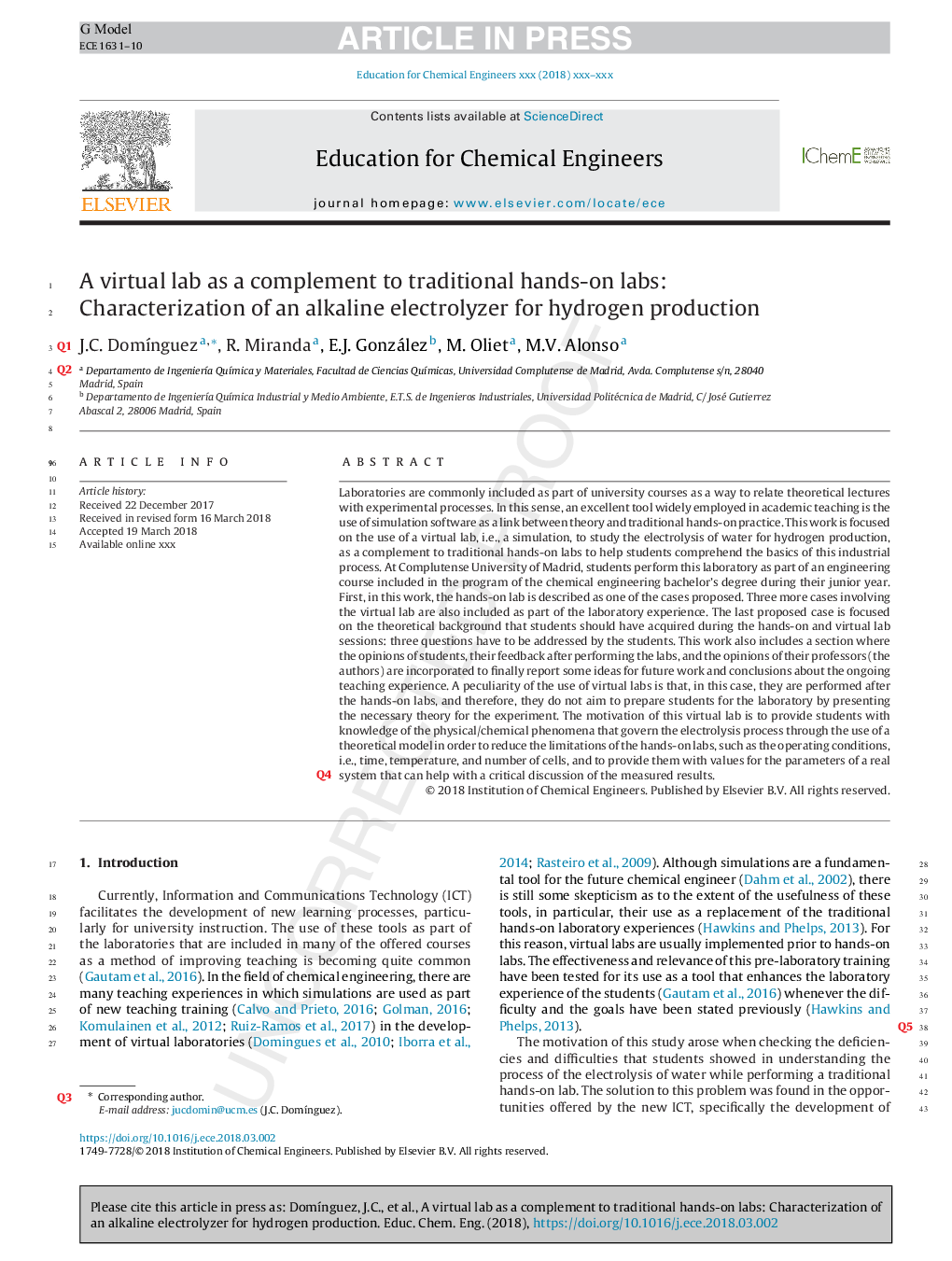ترجمه فارسی عنوان مقاله
آزمایشگاه مجازی به عنوان مکمل آزمایشی سنتی: مشخصه الکترولیز قلیایی برای تولید هیدروژن
عنوان انگلیسی
A virtual lab as a complement to traditional hands-on labs: Characterization of an alkaline electrolyzer for hydrogen production
| کد مقاله | سال انتشار | تعداد صفحات مقاله انگلیسی |
|---|---|---|
| 90620 | 2018 | 10 صفحه PDF |
منبع

Publisher : Elsevier - Science Direct (الزویر - ساینس دایرکت)
Journal : Education for Chemical Engineers, Volume 23, April 2018, Pages 7-17
ترجمه کلمات کلیدی
آزمایشگاه دست، آزمایشگاه مجازی، الکترولیز، شبیه سازی،
کلمات کلیدی انگلیسی
Hands-on lab; Virtual lab; Electrolysis; Simulations;

